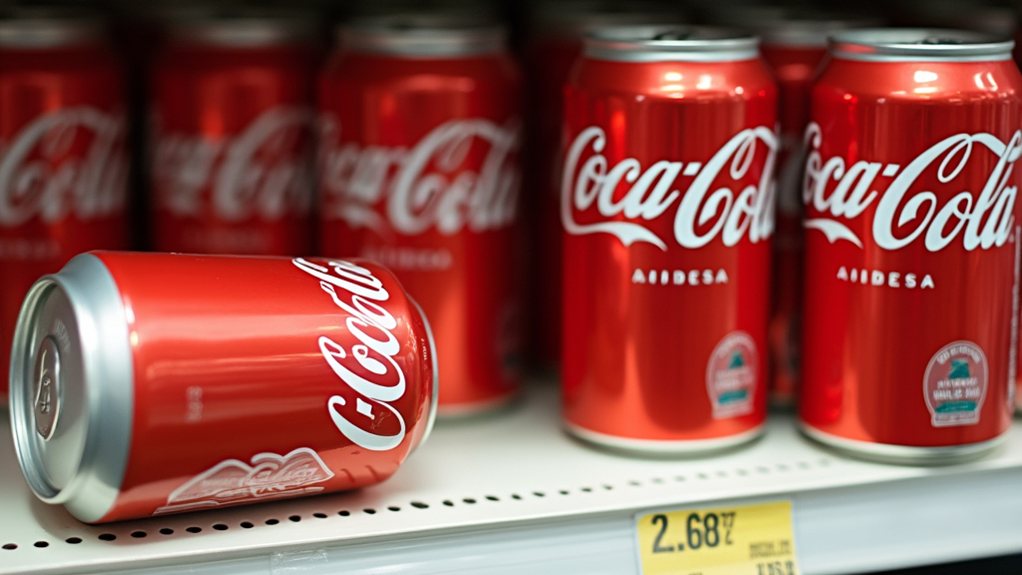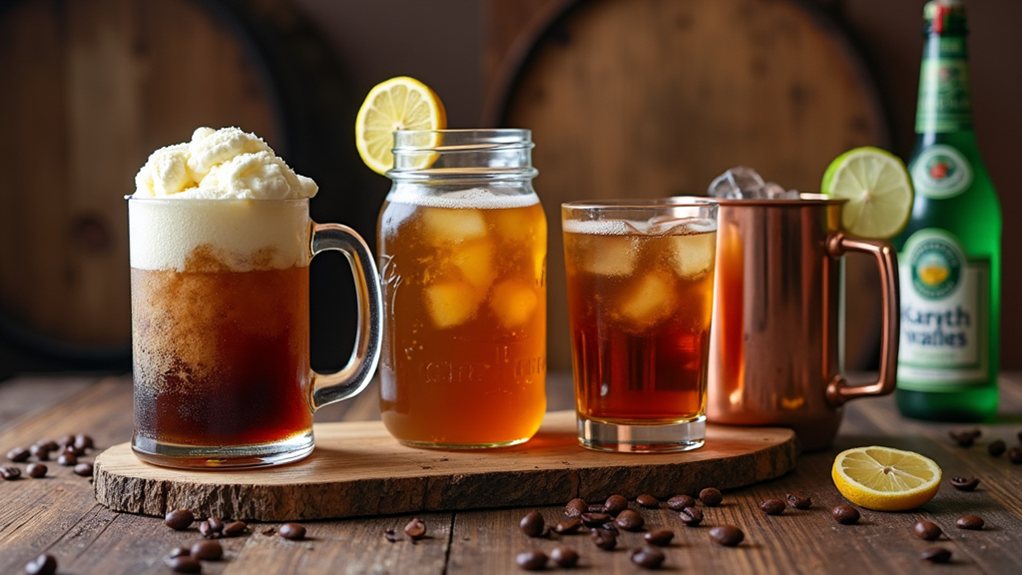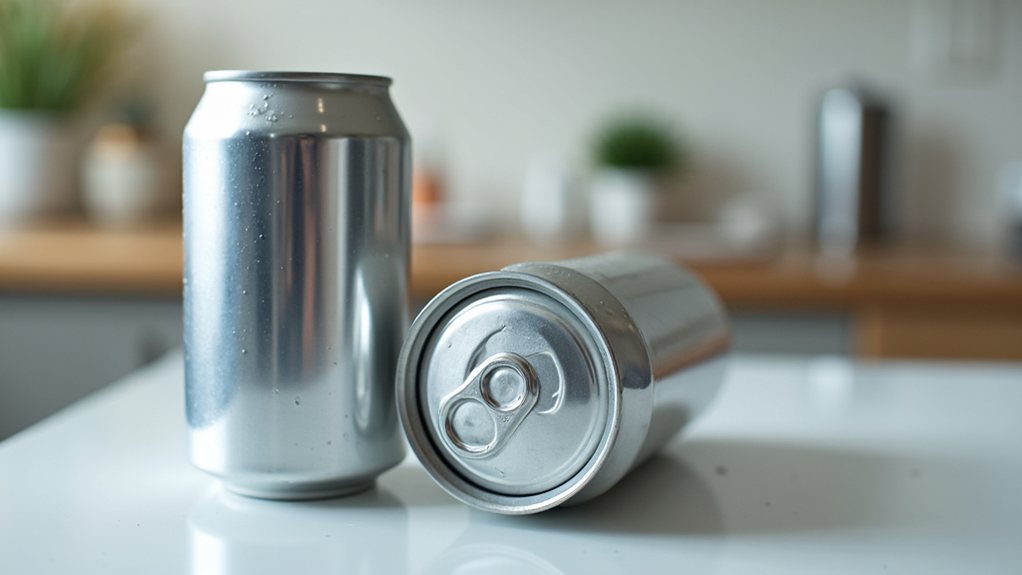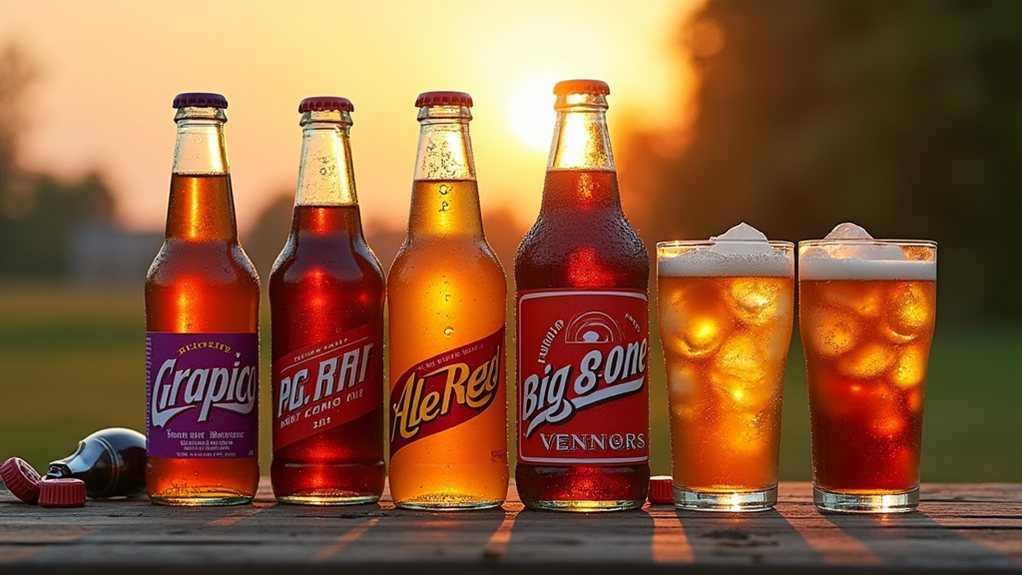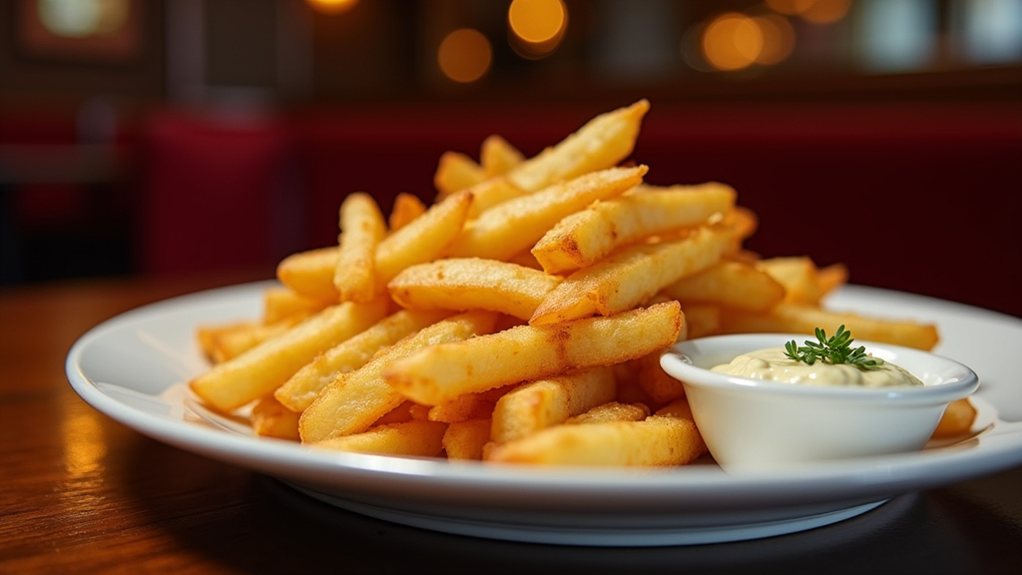The recent Coca-Cola recall affecting over 10,000 cans in Illinois and Wisconsin demonstrates how even iconic products face quality control challenges. FDA officials classified this as a Class II recall, indicating a relatively low health risk from potential plastic fragments. Consumers should examine their 12-fluid-ounce cans for specific date codes and UPCs to determine if they’re affected. While no injuries have been reported yet, the situation raises questions about inspection protocols and what other popular beverages might be hiding similar contamination issues.
Coca-Cola Recall Details and Consumer Instructions
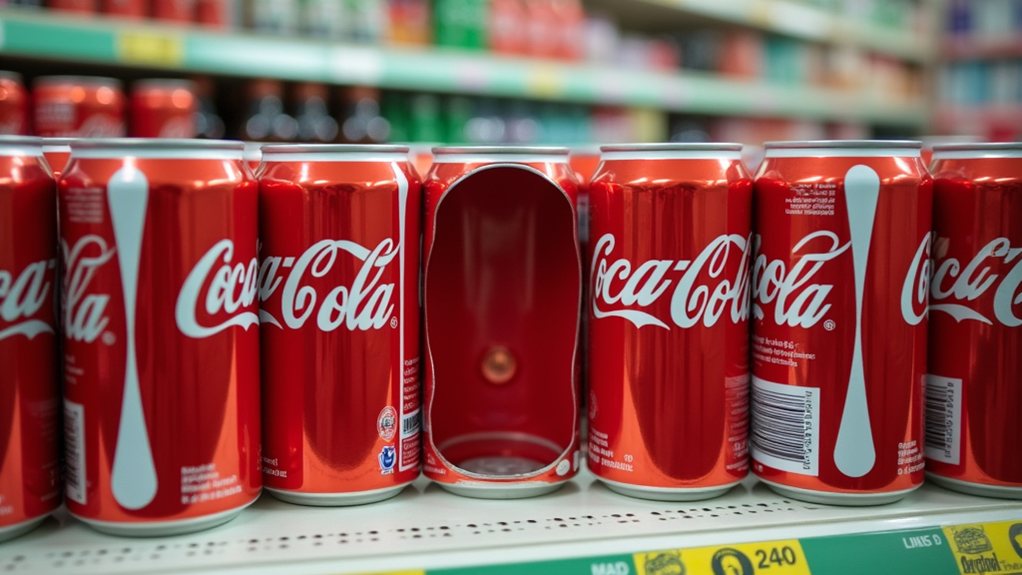
Following the finding of potential plastic fragment contamination, Reyes Coca-Cola Bottling LLC has initiated a voluntary recall of over 10,000 cans of Coca-Cola Original Taste from stores in Illinois and Wisconsin.
The recall, officially classified as Class II by the Food and Drug Administration, affects 12-fluid-ounce cans with the date code SEP2925MDA and time stamp 1100-1253, which can be identified by the UPC 0 49000-00634 6 on individual cans or 0 49000-02890 4 on 12-can packs.
The FDA’s Class II designation indicates that while consumption of these products could lead to temporary health issues, the likelihood of serious harm remains remote. This particular recall, assigned number F-0664-2025, represents one piece of a broader series of recalls affecting multiple products throughout the market.
No injuries have been reported in connection with these potentially compromised beverages, but caution remains the sensible approach.
The bottling facility in Milwaukee, responsible for the affected production run, identified the quality control failure that allowed plastic fragments to potentially contaminate the popular soft drink.
Reyes Coca-Cola Bottling issued a statement emphasizing their commitment to high-quality standards and the voluntary nature of the recall action taken to ensure consumer safety.
In total, 864 twelve-can packs were recalled, representing a significant but contained quality control incident for the bottler. The recall specifically impacts total of 10,368 cans of the popular beverage across both affected states. Consumers who have purchased Coca-Cola in these regions should examine their cans carefully, checking for the specific identifying codes.
Anyone possessing the affected products has two straightforward options: dispose of the cans properly or return them to the store where purchased.
Those with concerns about possible consumption should know that while unpleasant, the risk level has been categorized as relatively low by regulatory authorities. Health issues would likely be temporary and medically reversible.
For those seeking additional information or guidance, both the FDA and Reyes Coca-Cola Bottling have established contact channels to address consumer questions.
This fizzy fiasco serves as a reminder of the sometimes bumpy road from production to consumption, where vigilance by manufacturers and regulators helps keep consumers safe from unwanted extras in their everyday refreshments.
